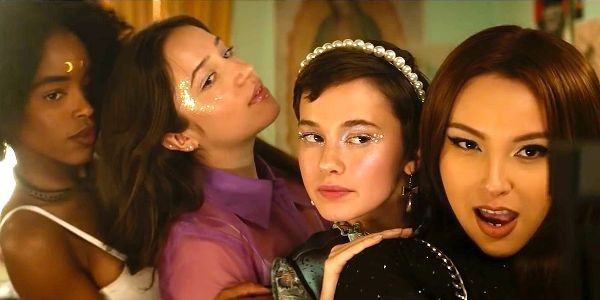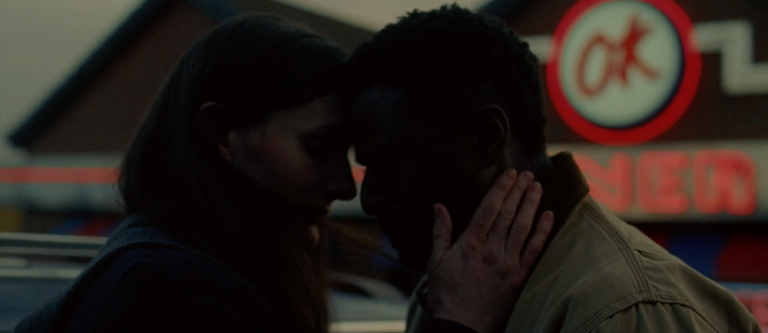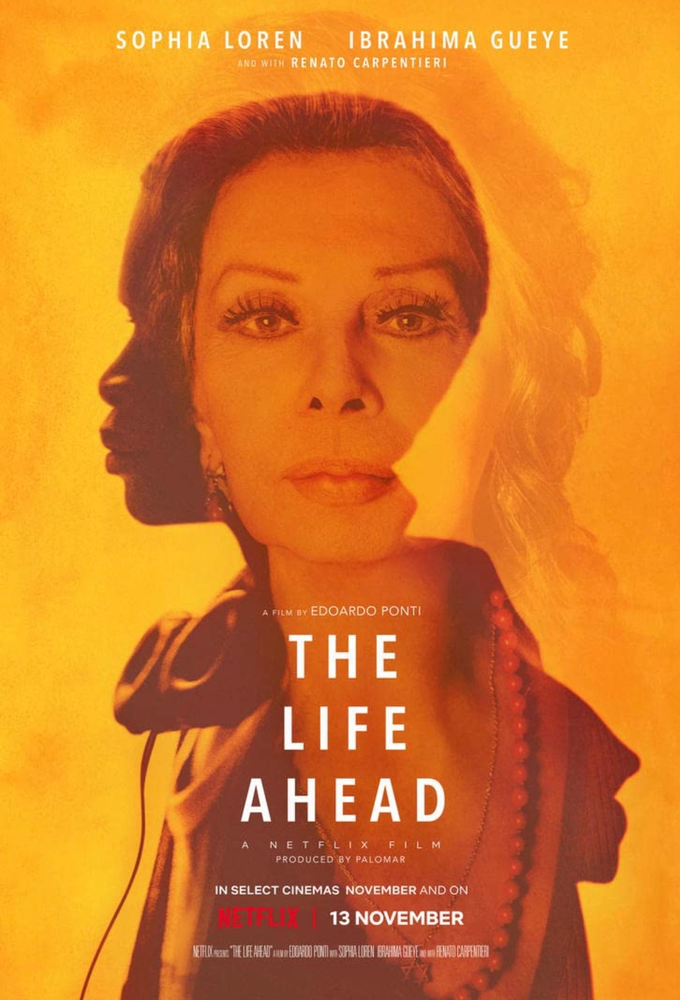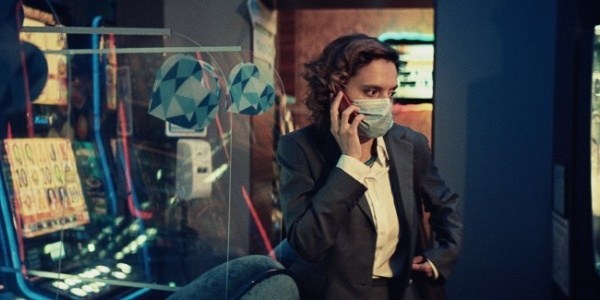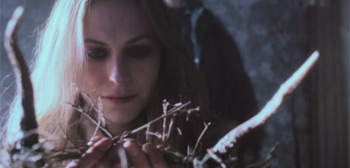ENFANT TERRIBLE: The Troubled, Tragic Soul of an Auteur
“I like to provoke. Otherwise, nothing happens.” So sums up the “cri de cœur” of the post-war reconstruction of culture, the regeneration of a New German Cinema, in particular the singular artistry behind Rainer Werner Fassbinder, one of the few filmmakers — alongside Jean-Luc Godard, Brian De Palma, Pier Paolo Pasolini, Nagisa Ōshima, Lars von Trier — unanimously hailed as a national “enfant terribles.” Art, according to Fassbinder, had to rail against polite convention, disturb the self-satisfied equilibrium of bourgeois consumption, and portray with vivid empathy the downtrodden and marginalized. Over a prolific career cut tragically short by a drug overdose at the age of thirty-seven, he had directed over forty films and two television series, written twenty-four plays, and irreversibly impacted the medium he dedicated his life to.
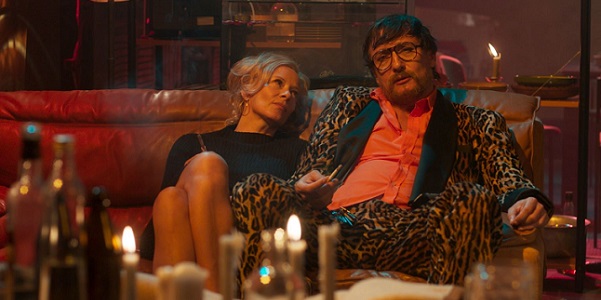
Enfant Terrible, Oskar Roehler’s filmic biography of the maestro, intertwines this political manifesto with its subject’s personal life. Designed, ostensibly, to resemble telefilm kitsch, and for the most part, theatrically staged, the film’s very set design reflects Fassbinder’s theatrical origins, a lifelong influence that never left his creative process. From the pivotal moment back in 1967, when he stormed the Action-Theater in Munich and hijacked its leadership, to his posthumous expressionist adaptation of Jean Genet in 1982’s Querelle, the artifice of the theatre always formed the backdrop over which his characters and narratives led their tragic lives and ran their fatal courses. Realism was of little interest to the Brechtian, who sublimated the chronic discontentment of reality into melodrama and then mastered it some.
Over these fifteen fever-ish years, the much-scorned underdog of post-war Germany’s nascent cultural scene — and famous reject of the Berlin Film School — found his revolutionary visions vindicated by a younger and intensifying counter-culture, often themselves the subjects of his films. Where political factionalism was rife and insurgencies ran on the purportedly democratic side of the Iron Curtain (most notably by the infamous Baader-Meinhof Group), social upheaval followed. The forming of intersectional cultural identities out of the ashes of fascism and the painful shame of de-Nazification created many negative spaces and widened many rifts: Arab immigrants, political anarchists, queers, sexual ‘deviants’, many of whom shared marginalized spaces, frequenting the outsider haunts of the velvet underground.
A Portrait of the Artist as a Young Man
Giddily immersing the viewer in this chaotic era, Enfant Terrible affixes its contextual baggage — as biographies are wont to do — onto its problematic subject, in part a product of his time, in part a founder of the new order. Roehler’s direction almost surrenders itself to the compulsive magnetism of his West German predecessor, his visual cues and temporal cuts an extension of Fassbinder himself, as if IN the latter’s mind. A constant swirl of booze, drugs, sex, dejected lovers, disenchanted artists, throbbing and pulsating to no end, without a stable narrative referent except the tormented auteur and his singular drive to create, synthesize, shock, infuriate, arouse, rebel; one can recognize this impulsively headstrong zeitgeist in Fassbinder’s own idol, Godard, whose breathless New Wave had reverberated across the continental West.
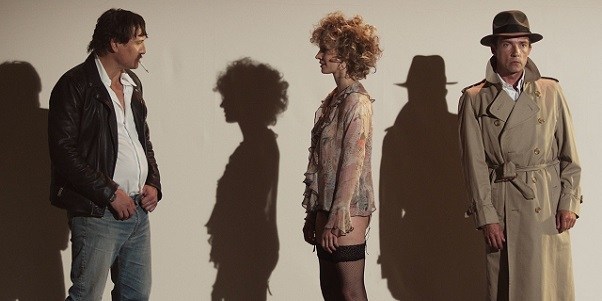
Oliver Masucci, who plays Fassbinder, accentuates the latter’s immutably disheveled countenance, sporting an unkempt beard and smoking incessantly, clad in a black leather jacket, slouched, a sideways grin of pride and derision plastered on his face. (An artistic coup of Roehler’s: to cast an actor more than twice his character’s age at the start, and still a good two decades apart on Fassbinder’s deathbed.) He barges into a play rehearsal uninvited, upstaging its realist presentation in favor of a more radical spatial alienation. His transvestite lover, Britta, is swiftly abandoned for new blood (Kurt Raab, a lifelong Fassbinder collaborator, portrayed by Hary Prinz). But almost all of the abandoned flock back to him, trapped in his orbit either out of plain adulation or of perverse masochism. They collaborate with him for years, enduring physical injuries, financial crises, and emotional abuses. And yet the filmmaker’s vitality seems unprompted, on the spur: “he has no plan, he only acts like he does,” as Raab puts it.
From the jeering schadenfreude of his debut premiere, Love Is Colder Than Death, at the 1969 Berlinale, to the cultural recognition of Veronika Voss some thirteen years with the Golden Bear, Roehler chronicles Fassbinder’s artistic path and tumultuous relationships with prodigious mythos, aggrandizing his misfit stature and flamboyant self-destruction even as, simultaneously, the layers of his public persona are peeled back, de-mythologized as borderline sociopathic. As Art finds itself elevated or reduced, depending on how the viewer might view pronouncements of auteur status and individual genius, to a transcendental signifier to be crystallized in the enfant terrible, Fassbinder consequently has his personal demons bared before the camera, his emotional instability and narcissistic codependency realized in ugly sequences on his film sets. No one escapes his wrath: not Günther Kaufmann, his “German Negro”; not El Hedi ben Salem, the Moroccan-labourer-turned-lover; not Armin Meier, who ended his life after their romantic fallout.
The Artist as Torturer, Tortured
Yet, for all its gaudily drab collisions and intoxicating atmosphere, the pervasive mood of suffering in Enfant Terrible does not seem quite positioned to compensate for its comparatively glossy examination of the artistic legacy left behind by its sufferer. “Life is film,” declares Fassbinder to his apoplectic entourage, but what Roehler neglects to explore is the output, the gut-wrenching melancholia, and hysteria of the auteur’s tortured leading ladies onscreen. The viewer is privy to some of Fassbinder’s unorthodox working methods onset, his screenwriting process (in which his lovers type out what he dictates); yet, funnily, the interplay between art and life remains dormant, mechanized as facile stereotypes as opposed to mutual causation. Gudrun (Katja Riemann), a possible amalgamation of Irm Hermann and Ingrid Caven (two of his more enduring partners and muses), faithfully sees her lifelong friend through thick and thin, tempering his alcoholic rages with motherly support — and, on occasion, exasperation. She is also the film’s least foregrounded recurring character.
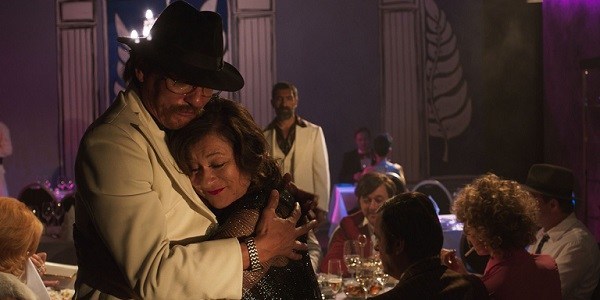
Franz Kafka, in The Zürau Aphorisms, wrote: “You can hold yourself back from the sufferings of the world, that is something you are free to do and it accords with your nature, but perhaps this very holding back is the one suffering you could avoid.” Roehler’s portrait of Fassbinder aphorizes likewise. Eternally fixated on creation, and numb to the equally compulsive destruction of himself and of others in his wake, Fassbinder never saw an end to his artistic endeavour, believing his masterpiece to have yet been realized. His pessimism on human nature and the encroachment of fascism in everyday life mirrors Kafka’s own protagonists, trapped in an unending and labyrinthine apparatus of social relations (bureaucracy for the Austrian, unhealthy love for the German). His lack of belonging, to any group other than his agonized commune, parallels the inherent disconnect between man and state in Kafka’s works.
Conclusion
Enfant Terrible, to its credit, offers a heightened state of reality, its hypnotic canvas of the raging seventies trapped in suspended animation, where bohemian figures lived on coke and polyamory, sometimes at the periphery of politics, sometimes caught in its center. As a film about an outsider who never capitulated to the mainstream even after the mainstream embraced him, it remains, however, surprisingly tame. Perhaps the fetishization of Fassbinder’s genius and madness, as Roehler conjures with immaculate expression, works little magic on the man whose genius and madness was greater than life. Glimpsing Death himself right before his passing, filled to his head with barbiturates, his last thoughts are anyone’s guess. “Each man kills the things he loves,” said Jeanne Moreau’s Lysiane in Querelle. Did Fassbinder kill off his creations through years of flagellation and anguish, or did his creations end up consuming his body and soul? Roehler’s interpretation of his life is a beautiful sheen of pastiche, but a sheen nonetheless. To really delve into the head of the enfant terrible, there is no better place to start than his own films.
What do you think of this biographical film? Please let us know in the comment!
Watch Enfant Terrible
Does content like this matter to you?
Become a Member and support film journalism. Unlock access to all of Film Inquiry`s great articles. Join a community of like-minded readers who are passionate about cinema – get access to our private members Network, give back to independent filmmakers, and more.
Join now!
